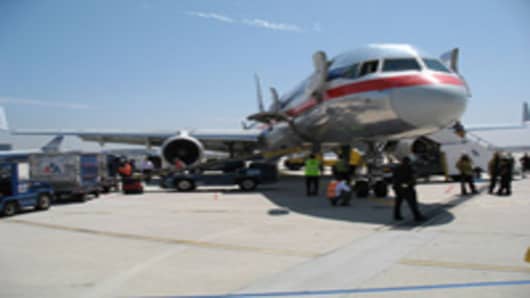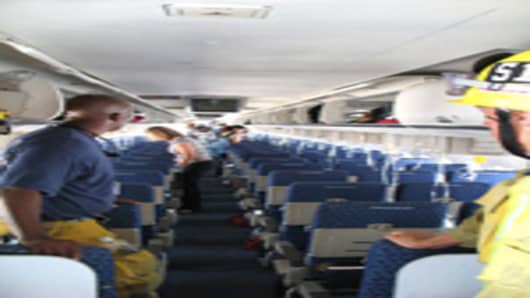Chris N. writes: "You say at 'good companies' like Southwest the flight attendants are encouraged to make decisions in the field? At all airlines in the US this is the environment. If this happened at Southwest and the company did not investigate why the decision was made then that would be a grievous error on the company's part. An investigation is not meant to deter decisions in the field but rather see if the training that led to that decision is adequate and appropriate.
As a pilot I expect the cabin crew to follow the chain of command but lacking communication, they need to make a decision and do it in a timely manner. An example of this was Delta Air Lines flight 1288 back in 1996 which had an engine explode (killed 2 passengers). The flight attendants initiated an evacuation after they could not reach the cockpit crew (the loss of power prevented this). This decision was investigated fully by the company as it should have been and is now used as a training video... BTW, would a 'good' company purposely skip hundreds of inspections on aging airplanes with a history of skin fatigue and failure due to the cost of taking them out of service? SWA did."
From Dennis M.: "Sure, go ahead blame the hard working people at the airline...they always try to put the blame on the unionized work force. They're probably worried that the cost of reservicing the chutes will cut into their multimillion dollar stock options and bonuses."
Alicia S., who says she's an airline captain, writes: "Thanks for being the first person that I've seen to actually write 'the captain' and then 'he or she'. You'd think in 2008 that it wouldn't be a shock to see female captains but believe me, I get the comments every day. Just fyi- if there was still smoke in the cabin and the FAs heard nothing from the flight deck, they are supposed to start the evac."
John D., who says he's retired from American, says that airline's policy on "self-initiated evacuations" is as follows (he also does the "he or she" thing regarding the Captain!): "An evacuation is an injury prone event and should only be undertaken when life is at stake on board. The Captain, if he or she is functional, is the best judge of this condition. The flight attendants should not self-initiate an evacuation, UNLESS the cockpit crew, particularly the Captain, is unable to execute his or her command/decision responsibilities. That was not the case for flight 31 LAX-HNL on August 5. In any case, there are lessons to learned from any evacuation event. This should be a 'non-jeopardy inquiry.' I'm sure American Airlines Safety Management will do the right thing."
And Jon D. takes issue with my reporting: "The flight attendant in the picture that accompanies the article is not an American Airlines flight attendant judging by the uniform she is wearing. When journalists settle for using 'stock footage' or 'file photos' it makes me wonder what kind of research is really done in preparing an article that can be taken as factual. Mass media journalists know nothing about aviation and should refrain from writing about the subject because those of us in the industry can spot the glaring errors that make scribes look like fools.
You start your last paragraph by writing; At good companies (Southwest), employees are encouraged to make calls in the field. I am pretty sure that the flight attendant procedures in a situation like this don't differ much between Southwest and American. Are you inferring that American is not a good company? Again, the lack of research and historical knowledge stand out. Try reading 'Eagle' by Robert J. Serling for a history of what American Airlines has contributed to the airline industry in this country, or 'A Spirit of Greatness' by John M. Capozzi for some stories of American Airlines employees going above and beyond. I work for a major airline and it is not American."
Actually, Jon, I think I'll just ask my husband, a former American Airlines pilot. He, too, hates it when reporters talk about aviation and get it wrong, like showing stock footage...of PSA...or talking about the Boeing tanker and showing the Northrop one...
Questions? Comments? Funny Stories? Email funnybusiness@cnbc.com




